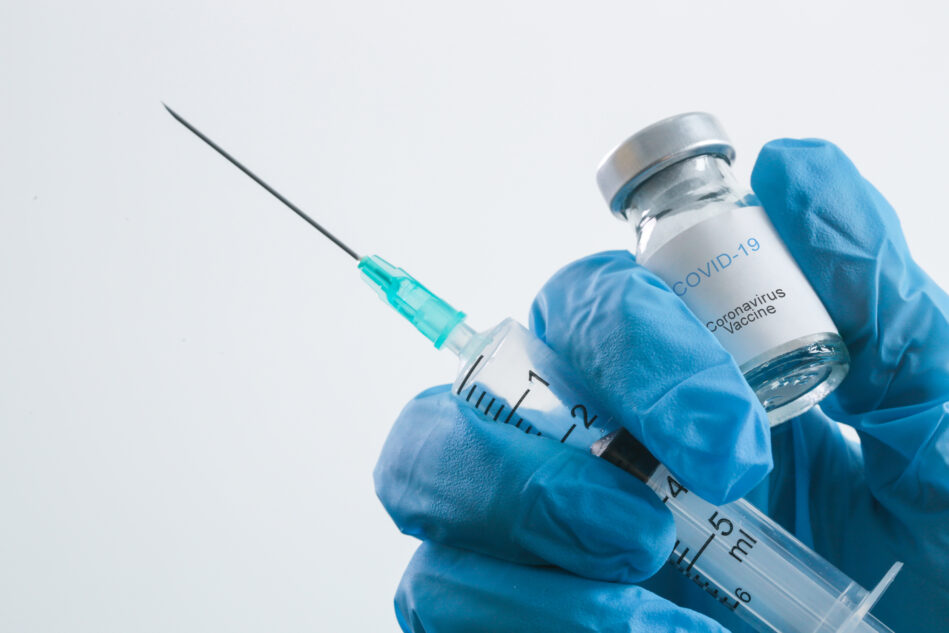As recently as last fall, I was dead set against getting the COVID-19 vaccine. I thought the trials were rushed, the science too new and the chance that I would be harmed if I got COVID-19, small. I emphasized my stance in the blog 6 Factors to Consider About a COVID-19 Vaccine.
In December and January of 2020, a lot of information became available about the various vaccines, the testing and history of the messenger RNA (mRNA) vaccines, which both Pfizer and Moderna used. It was then I realized the science is not new. Medical researchers have been working on mRNA vaccines for a couple of decades. They had made a lot of mistakes along the way, which meant that the path to success was clear at just the right time to apply it to COVID-19.
I was right that the clinical trials were fast, very fast. I discovered that the fact that COVID-19 is highly contagious made fast trials possible. It is so contagious, that it was very quickly clear that the vaccine protected people much better than the placebo. Because of government financial support (for all companies, except for Pfizer that declined money), drug companies could afford to enroll tens of thousands of people for the vaccine trials within weeks, rather than years. The number of people tested was equivalent to other vaccines’ and new drug trials.
Definitely, the trials could have been better. The drug companies failed by not thoroughly studying subpopulations–women, pregnant women, ethnic groups and those with chronic diseases–and that was a lost opportunity.
There were reports about COVID “long-haul” syndrome as early as October 2020, but by the beginning of this year, the number of articles began to mount about side effects that don’t go away even when a patient has recovered from the virus. People I knew were suffering from long-term exhaustion or lack of the sense of smell and taste and more. That got my attention. I’m of an age that puts me in a risk group. Because I’m very active, healthy and eat well, I felt sure that COVID-19 couldn’t kill me. However, I hadn’t considered long-term harm.
I am a DES (diethylstilbestrol) daughter. I was damaged by the drug prescribed to my mother while she was pregnant with me. I’m already a survivor of one bad medicine, so I’m cautious about the medicines I do take. Because of my experience with DES, I founded MedShadow to help others understand the risks of medicines in order to make informed decisions about which drugs to take or avoid.
I wasn’t going to take any chances with some experimental shot-in-the-dark vaccine. But then again, the vaccines are not experimental. The Food and Drug Administration (FDA) approved them incredibly fast because the COVID-19 vaccines were put at the head of the line to review the studies ahead of other drugs lined up. No step was skipped. This wasn’t like what happened with DES, a drug approved with only one supporting study and an ad campaign.
By the time I was eligible for the shot in February 2021, more than 20 million people had gotten the COVID-19 vaccine. The short-term risks of allergy or blood clots were rare enough that I believed the benefits made it worthwhile. Of course, I was worried about some unforeseen adverse reaction that might appear years from now, like the damages from DES. But ultimately, the fear of long-haul syndrome possibly happening today scared me more than the unlikely long-term risk of the vaccine in the future.
Here’s a twist to my story. In late March, I read an article in The New York Times that discussed phantom scents as an unusual long-hauler symptom. I’d been experiencing a recurrent distasteful scent for several months, nearly a year. To find out if I had had the virus, I got an antibody test. Before I got the results back I finally got an appointment for the vaccine and so I got the first shot. Two days after the shot, I found out that I had antibodies for COVID-19. It’s very likely I’d had an asymptomatic case of the virus.
Ironically, I went for the shot because I was afraid of long-haul syndrome and I already had a symptom of it! When the time came, I got the second shot. But had I’d known that I had antibodies before that first vaccination, would I have not gotten the jab?
I’m not sure, but I think I would have waited and continued to test for antibodies every six months or so. As long as the antibodies held out, I could have put off getting inoculated and avoided even the tiniest risk from the vaccine.






